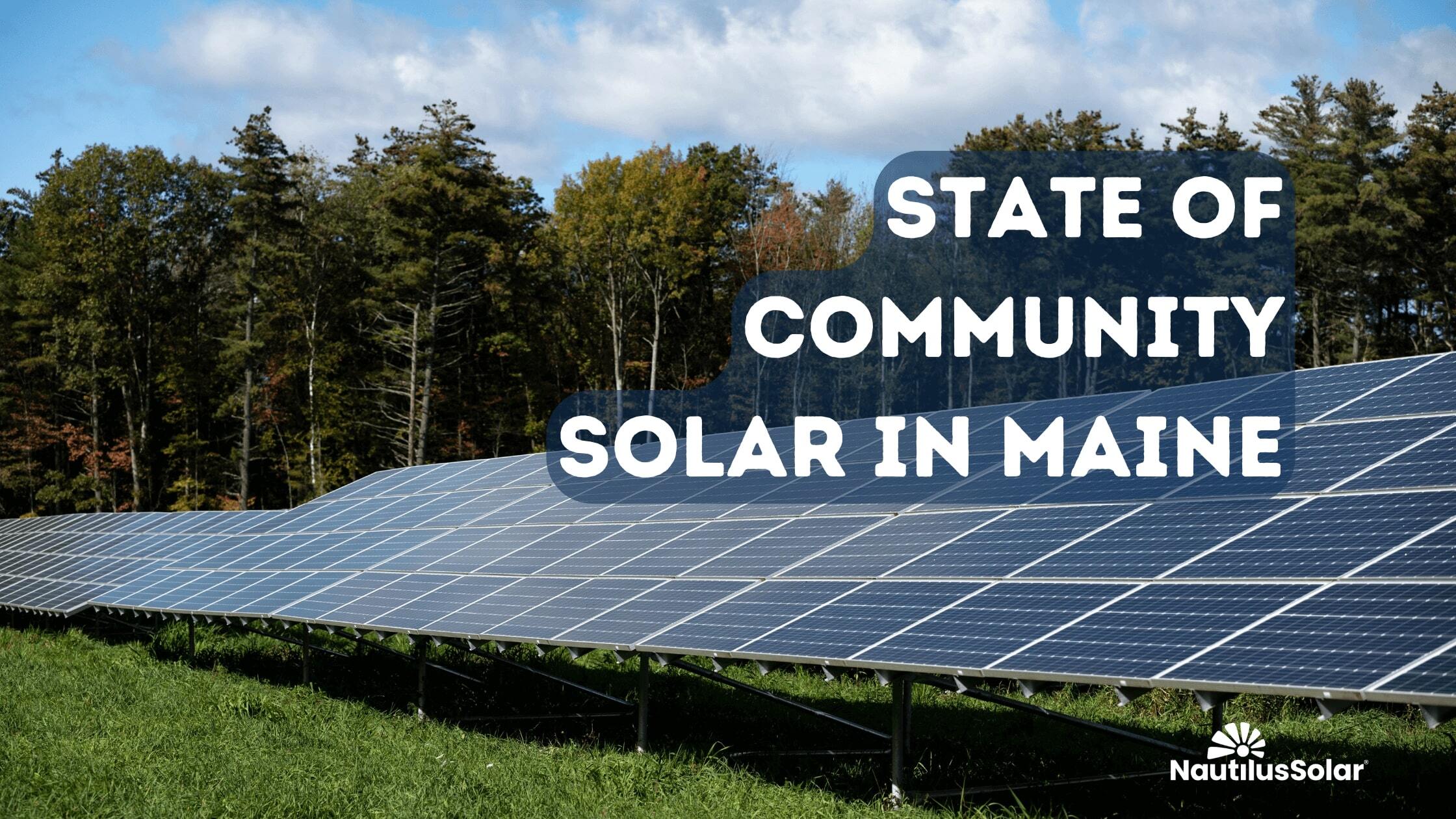The Current State of the Community Solar Program in Maine
October 10, 2024
What is Community Solar?

Community solar, also known as Net Energy Billing (NEB), allows utility customers to enroll to a portion of a solar project and receive credits on their electricity bills for the energy produced. State enacted program is particularly beneficial for those who cannot install solar panels on their own properties, such as renters or homeowners with unsuitable roofs.
Recent Developments in Maine
- Increased Solar Capacity: Over the past two years, Maine’s solar power generation capacity has surged by more than 300%, largely due to community solar projects. This growth is a significant step towards the state’s goal of reducing greenhouse gas emissions and increasing renewable energy usage. As more projects come online, the grid has struggled to manage the increased flow of distributed energy, causing construction and interconnection delays and additional costs for developers and utilities.
- Expansion and Regulation: As a result of increased solar capacity, the Maine Public Utilities Commission (PUC) has capped the NEB program at 750 MW to manage rapid growth and ensure a balanced energy market. This cap aims to maintain a competitive environment while supporting the state’s clean energy goals.
- Interconnection Agreements: Community solar projects that had an Interconnection Agreement (IA) or an NEB Agreement by December 31, 2020, are allowed to proceed under the program. This means that any new projects without these agreements will not be eligible for the current NEB program, effectively ending the opportunity for new community solar farms to join under the existing terms and limiting the number of residents who can participate in the community solar program.
- Federal Support: In April 2024, Maine was awarded a $62 million grant from the U.S. Environmental Protection Agency (EPA) under the Solar for All initiative. This funding is intended to help low-income and disadvantaged households access solar energy and support workforce development in the clean energy sector.
- Future Prospects: While the current program is capped, there is ongoing discussion about future policies and programs that could support new community solar developments. These might include new incentives or different models for integrating solar energy into Maine’s grid.
Benefits for Mainers
Community solar offers several advantages for Mainers:
- Cost Savings: Customers save 15% on their electricity bills over the course of a year. The savings come from the credits applied to their utility bills for the solar energy generated.
- Accessibility: The program makes solar energy accessible to a broader range of people, including those who cannot install solar panels on their own properties.
- Environmental Impact: By participating in community solar, residents contribute to reducing the state’s carbon footprint and promoting sustainable energy practices.
- Economic Impact: Community solar projects drive local economic development and job creation.
Challenges and Considerations
While the community solar program in Maine has many benefits, there are also some future challenges:
- Billing Complexity: Under the current program, customers in Maine receive two bills—one from their utility and another from the solar provider. Understanding the billing structure and managing these payments can be confusing for some customers. Nautilus Solar Energy offers a one-bill option which helps make the billing process straight-forward and easy to understand.
- Program Limits: The NEB program cap will restrict future growth and reduce the number of new subscribers able to take advantage of solar benefits. Nautilus currently owns and operates 16 community solar farms across Maine, with 14 more set to go live by the end of 2024, providing space for over 9,000 households to join.
- Long-Term Stability: The long-term sustainability of the community solar program in Maine depends on finding a balance between incentivizing renewable energy and managing costs. This includes exploring new financing models, improving grid infrastructure, and implementing fair and transparent policies.
Looking Ahead
The future of community solar in Maine remains bright, with strong state and federal support, including the Solar for All program, helping to make solar energy more affordable and accessible. However, with the NEB program set to end on December 31, 2024, due to the current capped capacity, now is the time for residents to act. As Maine continues its pursuit of clean energy goals, addressing challenges and fostering collaboration between developers, regulators, and the community will be critical to building a sustainable and equitable energy future. Don’t miss your chance to be part of this transition before the window closes.
Spots are limited to join Nautilus community solar so sign up early.

.png)

.png)